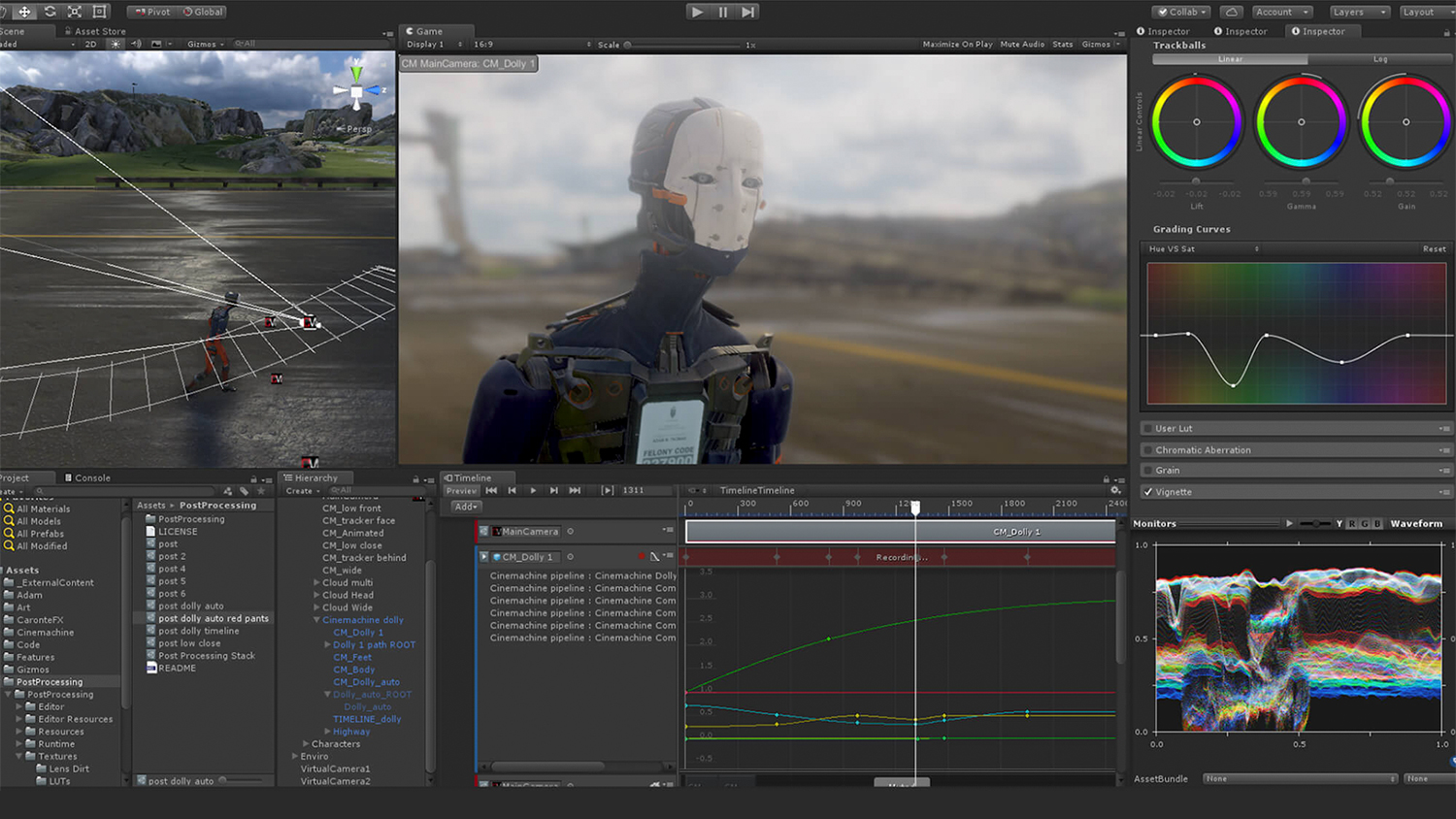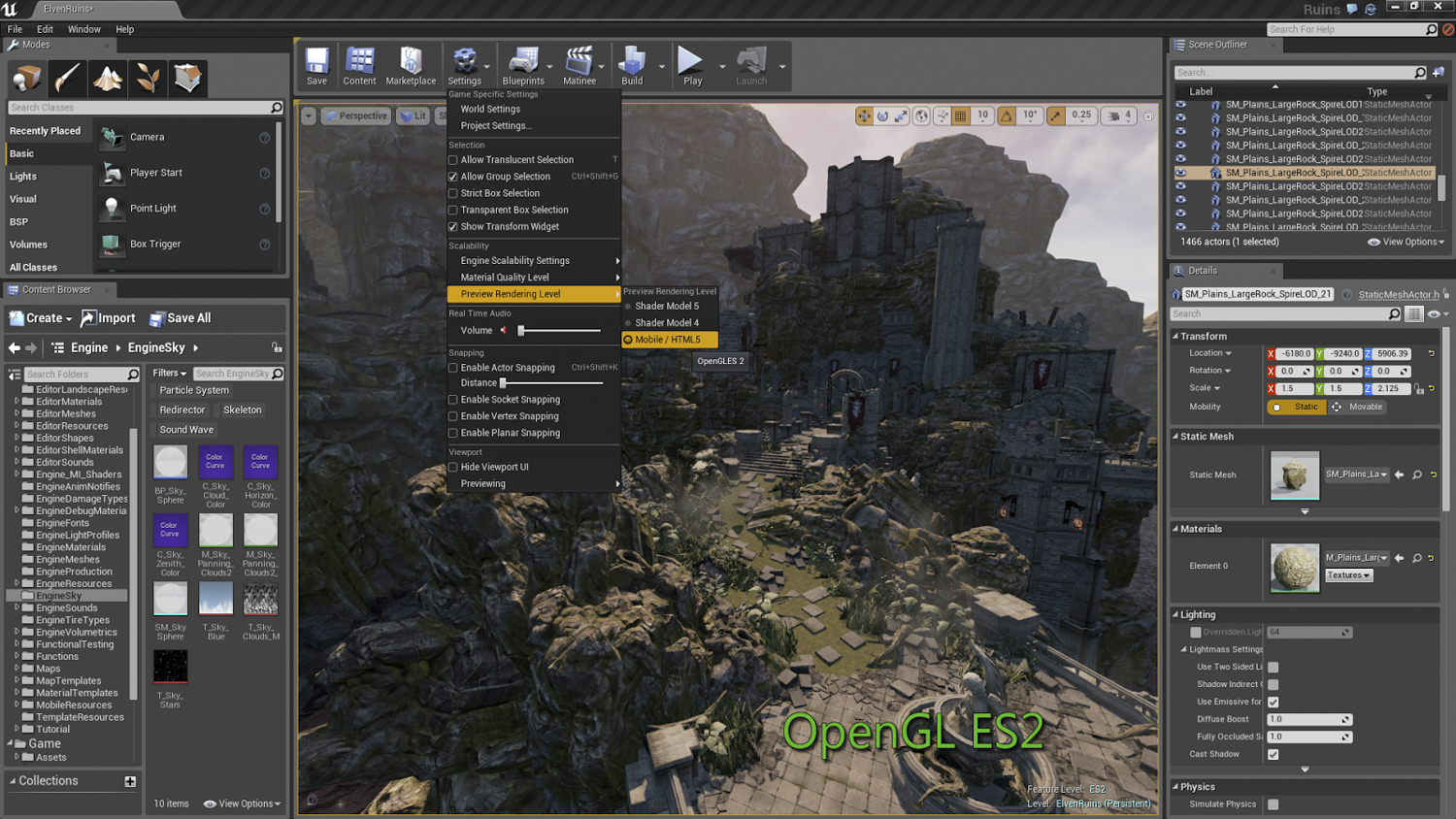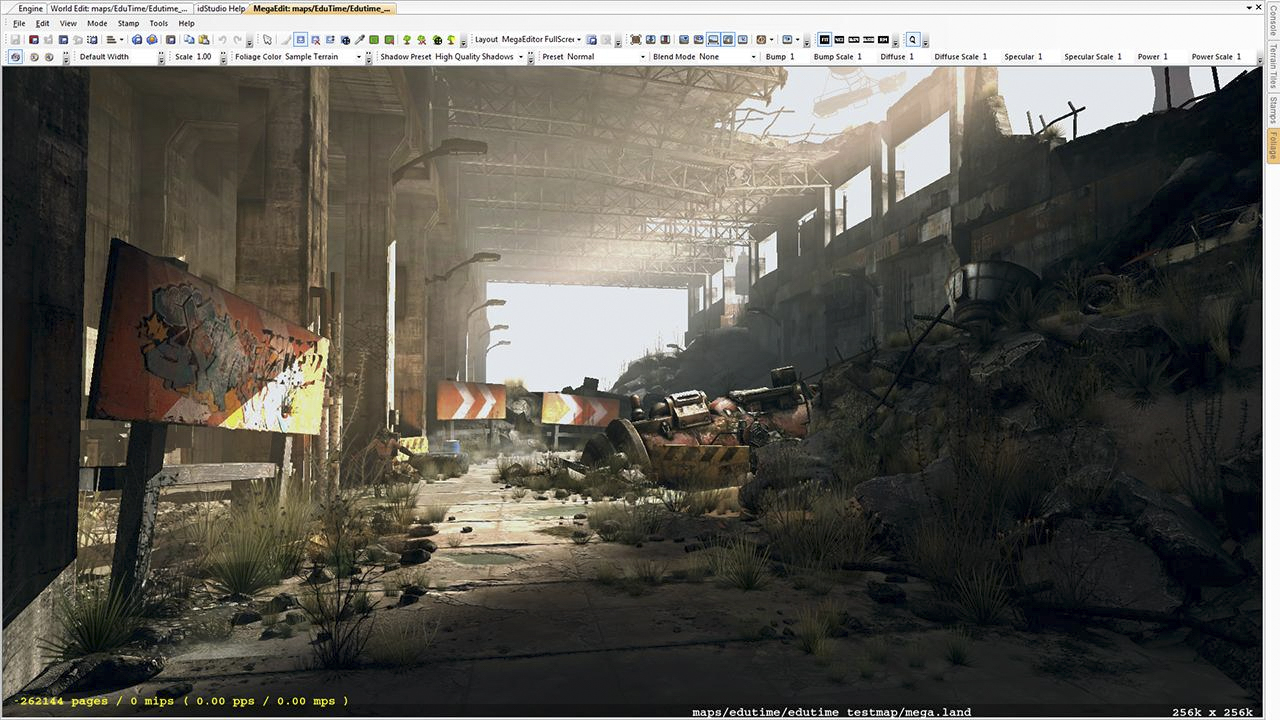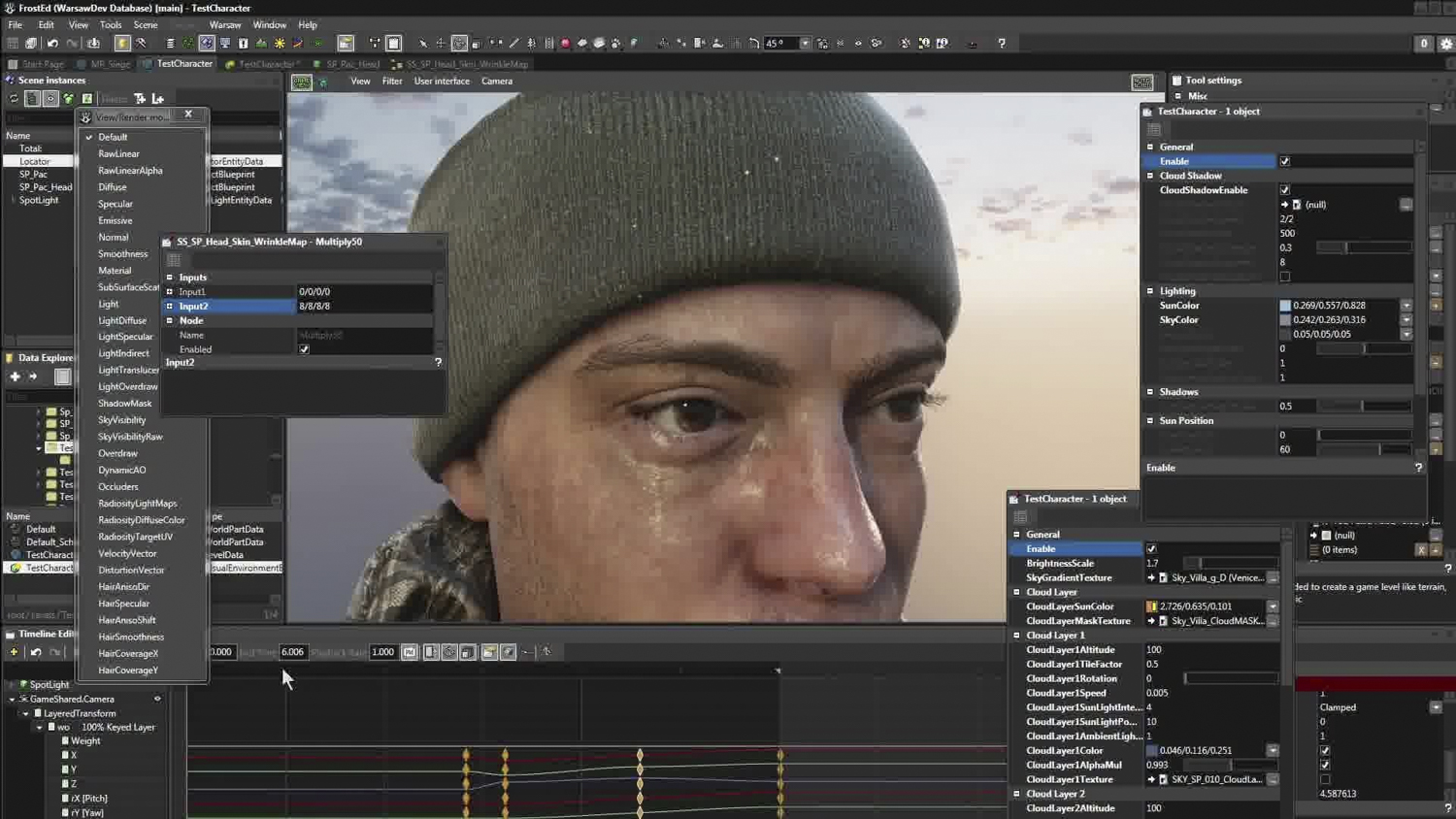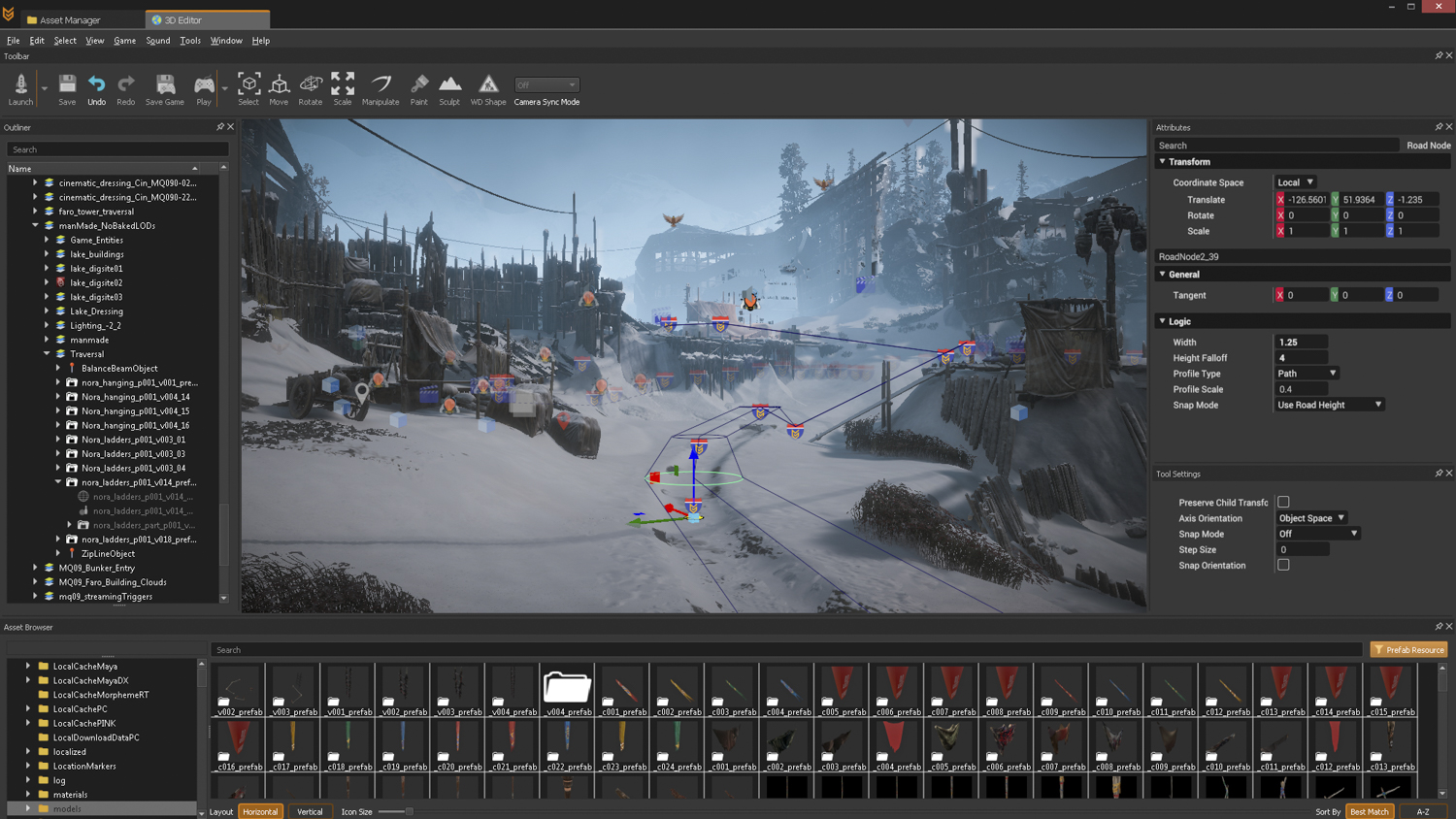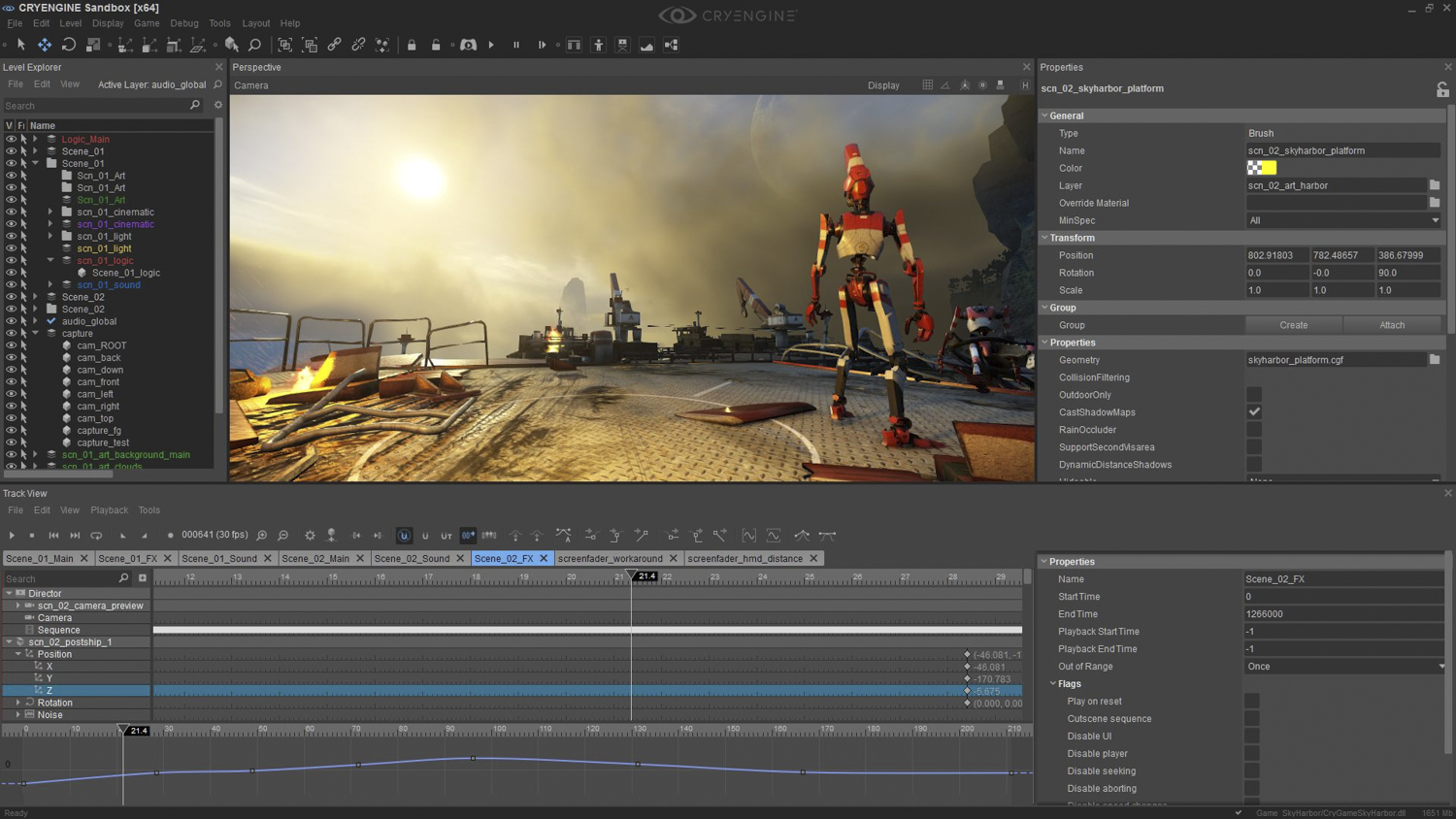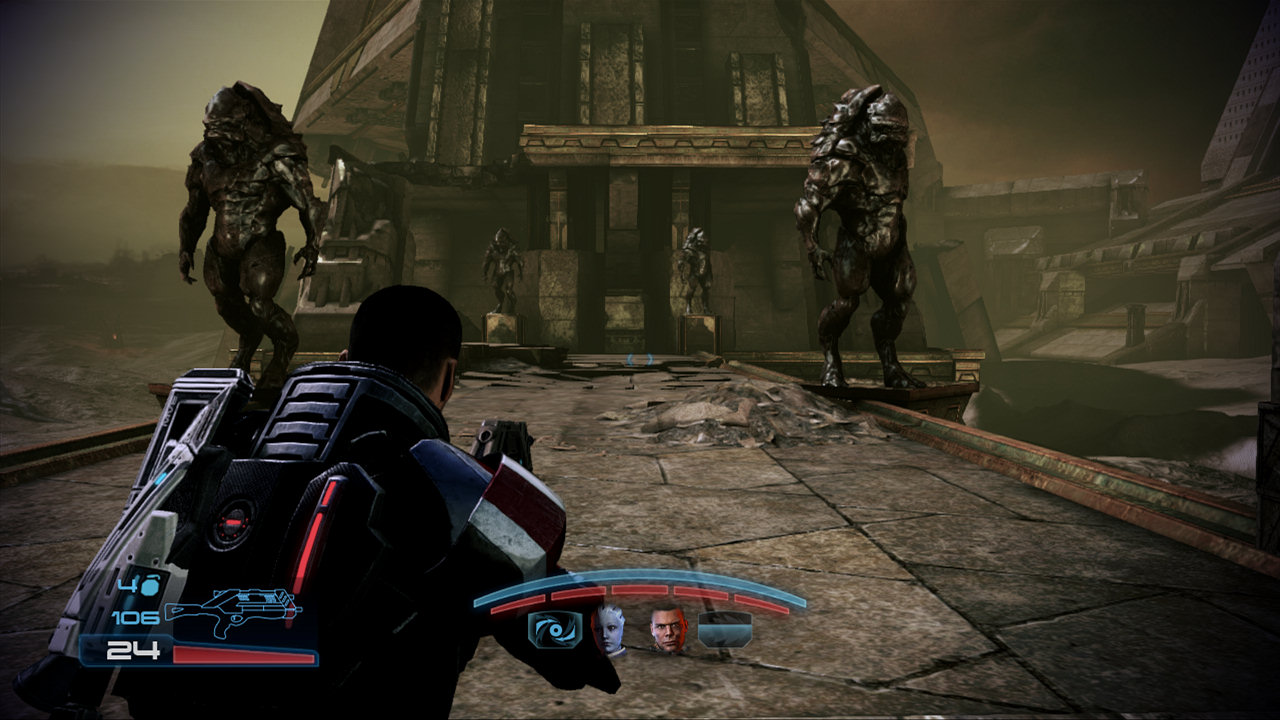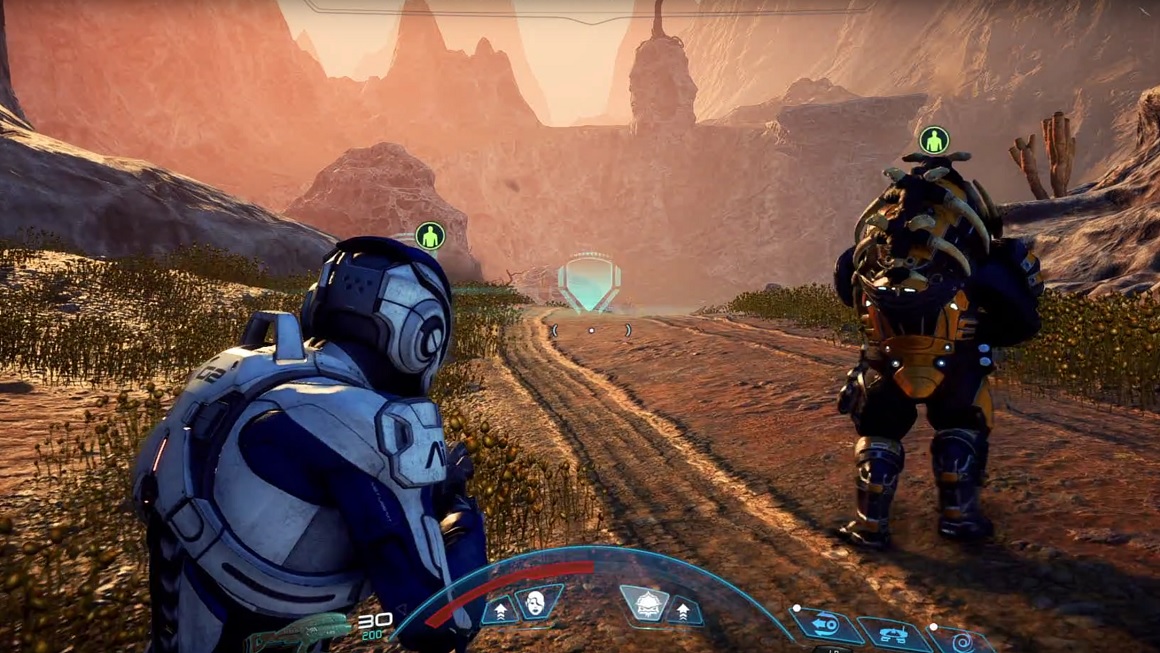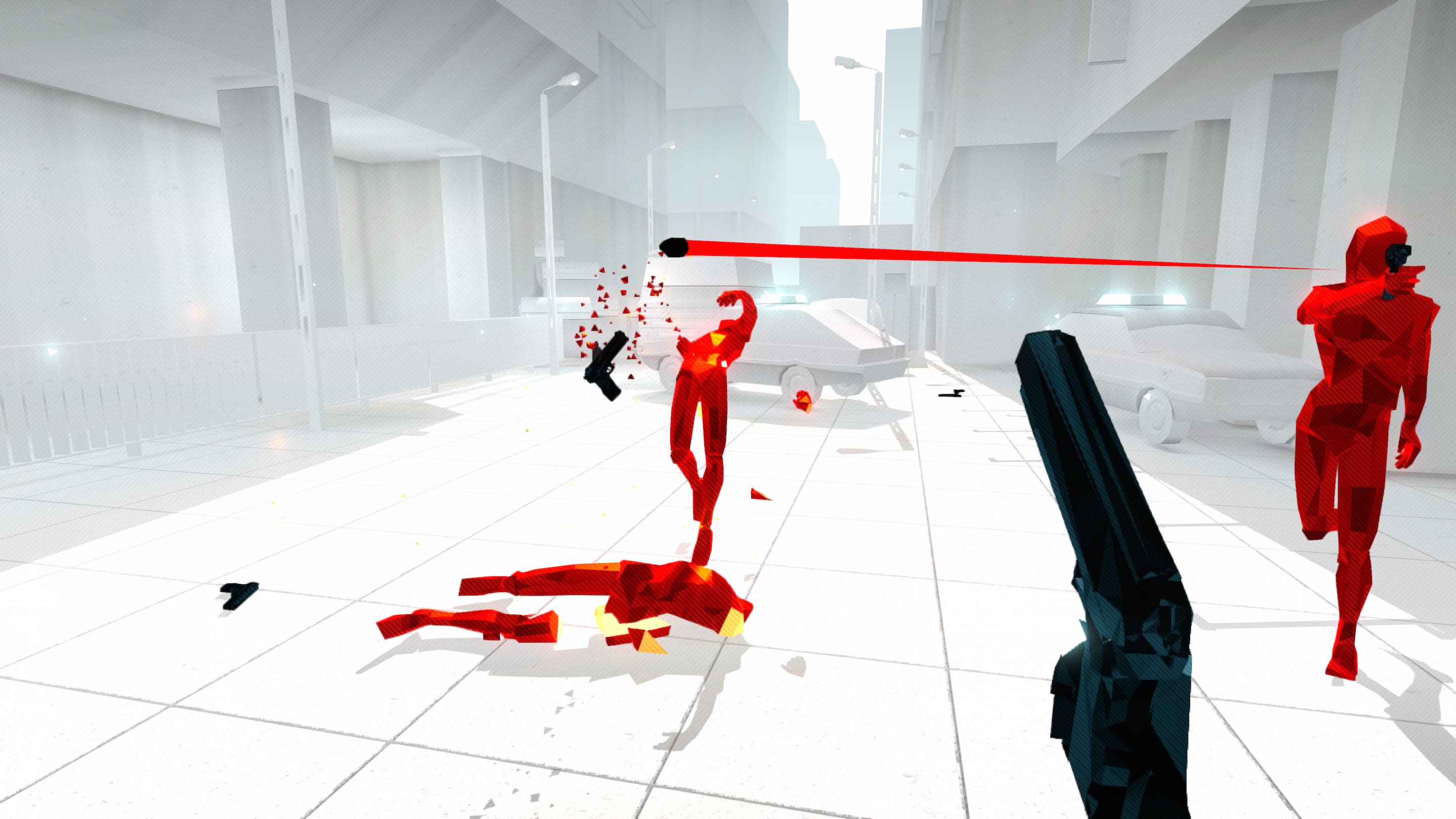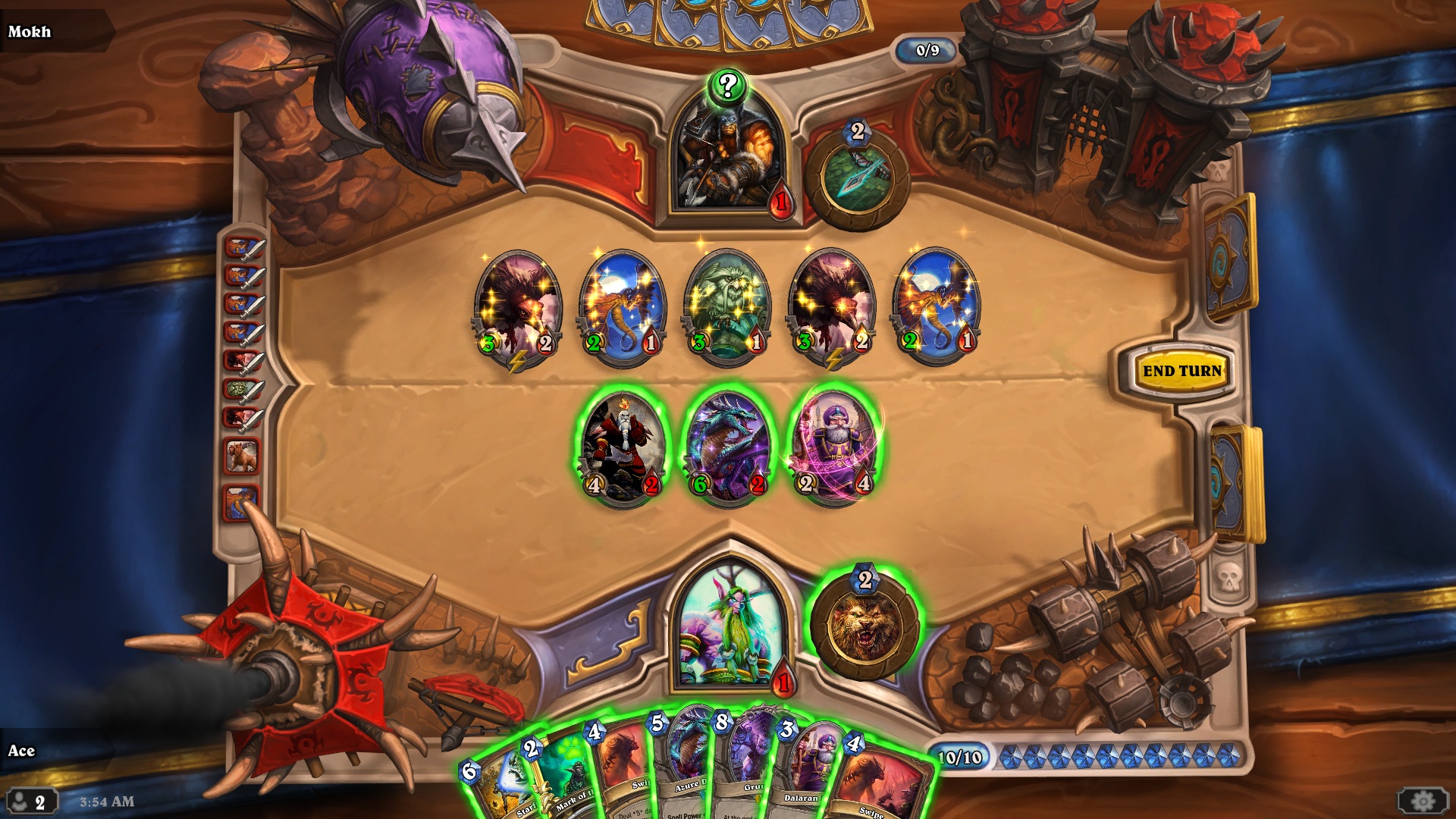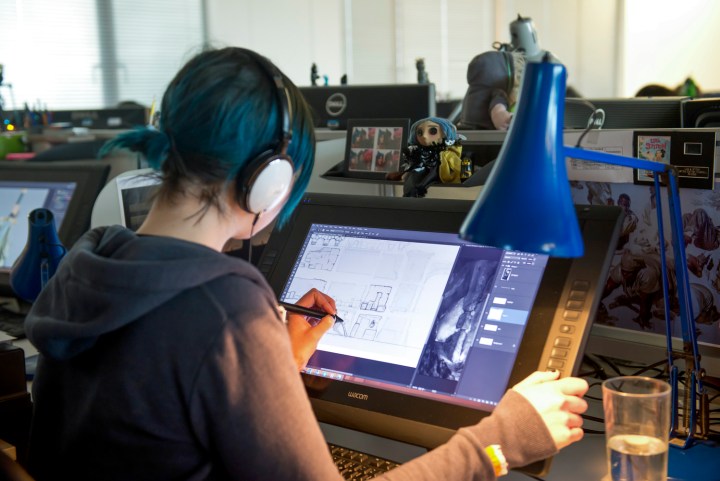
The next time you think to blame a game’s engine for its woes, hold up. There’s more to the story.
Imagine a jigsaw puzzle. Now, imagine that same puzzle with each piece made by a different person, from a different substance, with different tools. Some pieces are whittled from wood, others gnawed from human bone, and some socket together like Lego. It’s a weird puzzle, but somehow — it works.
That’s game development in a nutshell.
Even the simplest games on the market likely harnessed the creative output of a few thousand individuals, each one with their own weird piece of the puzzle. Fitting it all together requires a lot of specialized tools, and none is quite so contentious as the humble and oft-maligned game engine. Steam communities and comment boards are filled with complaints about Unity and other game engines like Unreal, Frostbite, and id Tech. Such critics often claim certain engines have a “look” which spoils the gameplay experience, or that certain engines are incapable of making good games.
That, however, simplifies the truth about game engines. To dispel the myths surrounding game engines — what they are, what they aren’t, and how developers really use them to make the games you play — we sat down with developers from Motiga (Gigantic) and Guerrilla Games (Horizon: Zero Dawn) to discuss the dark alchemy of game development.
What engines are, and aren’t
It seems the more we love video games, the more apt we are to slag them on Twitter for failing to live up to our lofty expectations. When we play games we don’t like, we blame developers, publishers, even technology.
A game engine is a tool, like a Swiss Army Knife, to create the game you want.
Game engines are frequently invoked as a slur against games we, or the collective internet, have decided not to like. Gameplay isn’t your cup of tea? Well, that’s probably because Unity is a garbage game engine for garbage people! — or so Twitter would have you believe.
In truth, a game engine is only a part of the effort made towards creating a finalized, playable experience. “A game engine is a set of technologies that allow you to make a game. It not only takes care of drawing the screen, animating the graphics, and playing sound, but also streaming the data off the disc or storage drive,” said Guerrilla Games’ tech director, Michiel van der Leeuw, told Digital Trends. “What people often also consider to be ‘the game engine’, but is really quite separate, is the toolset that comes with the engine to make the game content.”
Many game engines have a pre-made toolset, as is true of Unreal or Unity. These broadly available engines are sold to developers who want to build a game using commonly known software. However, some games have a custom-built game engine, like the one Guerrilla Games used to create Horizon: Zero Dawn.
“A retail game engine that is developed by an external company usually has a generic set of features that can be utilized in many different ways […] It’s a tool, like a Swiss Army Knife, to create the game you want,” said Brad Pendleton, lead engineer on Motiga’s engine team.
It is true that each game engine has its own set of features, and in some cases, those features may be better suited for some tasks than others. Yet the creative potential offered by even the most basic game engine is immense. Unity has been used to create tightly focused games like Poly Bridge, yet is also behind large open-world games like Yonder: The Cloud Catcher. The result is a reflection of the people using the engine, not the engine itself.
All Unity games look the same!
Many players accuse specific game engines off a specific, canned visual style. Just look at Battlefield 1 and Star Wars: Battlefront. They tackle wildly different subject matter, but there’s a certain similarity in the way light plays off of the environment, and in the way the game feels — right? There is, but it’s not because they both use the Frostbite engine.
How a game looks and plays is largely a part of a developer’s unique style, their individual fingerprints, not which tools they used to create their games. Battlefield 1 and Star Wars: Battlefront have some strong stylistic similarities, but that’s because they’re made by the same developer, not because they share an engine.
Even the simplest game on your phone likely harnessed the creative output of a few thousand individuals.
Bioware’s use of Frostbite delivers the perfect counter example. The famous RPG developer used Frostbite to build Dragon Age: Inquisition and Mass Effect: Andromeda, which have little in common with DICE’s Battlefield series. Yet Bioware’s games have unmistakable similarities to each other, both in how they play, and how they’re presented.
“Sometimes you can see, or guess, if a certain engine was used as they sometimes have a very specific look, or feel to them. More often than not it’s hard to see, as the signature look of a developer is often stronger than the signature look of the engine they’re using,” van der Leeuw said.
Identifying a game’s engine with the naked eye is like trying to pick out which brand of camera was used to shoot a movie. There might be some giveaways here and there, but it takes an expert eye to pick them out.
“Usually the scale of the game is a good indicator. With [Unreal Engine 3], it was often easy to spot the screen door effect used to fade out distant objects in game,” Pendleton explained. To a developer, such a tell may be noticeable, but players are unlikely to pick up on such subtleties if the developer has utilized their chosen engine properly.
Bioware’s games once again offer a great example of how a developer’s style is often more important than a game engine’s look. Consider, for example, the difference between Mass Effect III and Mass Effect: Andromeda. They’re nearly identical in visual style. Even light behaves the same — those signature lens flares are just as present as ever, and transparent glass has the same feel to it.
These two games exemplify what stylistic similarity looks like. They look the same on purpose, though they were built using completely different tools. Mass Effect III was made with the Unreal Engine, and Mass Effect: Andromeda was made with EA’s proprietary Frostbite engine.
As a counter-point, consider the look of Superhot and Hearthstone. One is a stylized first-person shooter, the other a highly addictive and polished collectible card game. Both were made using Unity. They were built using the same toolkit, yet they could hardly have less in common.
Practical differences
This isn’t to say game engines have nothing to do with the games they’re used to build. The engine can have an impact in subtle ways, or even significant, ways.
“Some engines are better in 2D games, some better in 3D. Some of them support many platforms, and some of them only support one. Some engines come with good toolsets, and some are very arcane,” van der Leeuw said. “There are engines that are free and made by enthusiasts, and there are engines made by commercial companies. There really are all sorts.”
The signature look of a developer is often stronger than the signature look of the engine they’re using.
Platform support is a big part of the equation. An engine like Unity sees a lot of use not only because it’s more financially accessible than other engines, but because it supports basically every platform. It works with Android, iOS, Windows, MacOS, PlayStation 4, Xbox One, Nintendo Switch, the list goes on. While the use of Unity doesn’t dictate the look of the game, it does make multi-platform development easier.
Choosing the right tool for the job means taking a hard look at what the development team will need for any game. Platform support is one example, but there are a lot of factors to consider when choosing which engine to use. Game engines can impact things like file size, available rendering features, and how well the game utilizes multiple processor cores.
“If I were to make a shopping list of must-haves they would start with: stability, documentation, source code, excellent tools, platform support, performance, great tools, flexibility to change features, easy to use tools, and quick iteration times,” Pendleton said, describing what he looks for in a game engine. “My shopping list is focused around quality of life in development; the easier it is to use the game engine, the more productive you will be.”
Building from the ground up
A third-party engine like Unity or Unreal is usually the right tool for the job. Sometimes, though, a developer needs to make a custom coffee machine, something tailor-built for the kind of weird brew they want. House-made engines give developers full control over the tools they use to make their games.
“The biggest advantage of an in-house engine is that the engine that you have is very specifically tailored towards the game that you’re making,” van der Leeuw explained. “This means you can be more creative and it can be easier to make use of all of the hardware features. Of course, it also means you need to have a big engine team, which is a downside.”
Designing an engine internally might require a larger team, but it’s a bit easier than making a retail engine like Unreal – which is why not every game engine becomes a platform for other developers. Building a custom game engine means making an engine only for a studio’s games, and it can have tools designed for very specific use. An engine like Unreal has to be big enough and versatile enough to handle all kinds of games, and it must include a package of tools and documentation that makes it accessible to others.
“A great deal of effort is required to package up a game engine that is versatile enough to be used in many different games,” Pendleton said, describing retail game engines. Internal engines let developers build the tools they need, and only the tools they need. “Why add a scissor tool to your Swiss Army Knife if no one ever needs to cut string with it?” Pendleton added.
Played a bad game? Blame the developer, not the tech
Even if you’ve played a few terrible games made with Unity, Unreal, or any other engine, crawling up into a game developer’s mentions and calling them out for using it is never a good idea. It’s a lazy, uninformed critique with the stability of wet sand.
Game engines are versatile tools, yet they hardly shape the final game. Games aren’t defined by the instruments used to build them — they’re defined by the people who wielded those instruments, the people who placed every rock and tree, the designers who tuned, re-tuned, and re-re-tuned gameplay mechanics until they hit just the right note.
Not every gamer needs to be an expert on the fine art of game design, but understanding a little bit of the behind-the-scenes work can deepen the appreciation of game developers, and game development as a whole. Understanding more about game engines makes gamers less likely to go flying off to Twitter every time they see a Unity splash screen.
Editors' Recommendations
- As the internet raged, game developers at GDC screamed for change
- LinkedIn adding word games so you can procrastinate at work
- 2023 was a renaissance for strategy games. Enjoy it while you can
- The best Lenovo gaming laptops you can buy right now
- When a high frame rate can lose you the game
